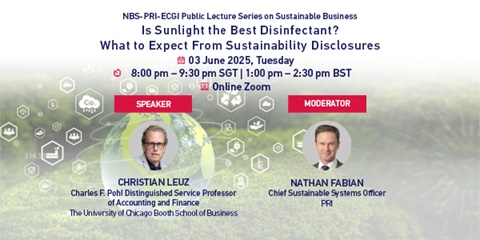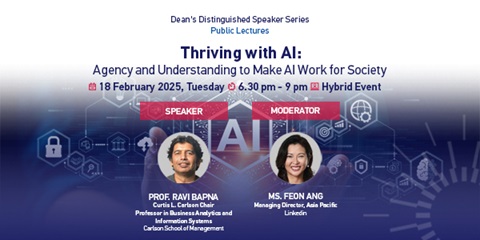Swearing can be a good thing in the age of artificial intelligence
"Swearing, a curse word/Spilled from lips in moments of rage/A sign of frustration."
This poem on swearing was not written by me, but by the artificial intelligence engine, ChatGPT.
ChatGPT is developed by Silicon Valley-based OpenAI. It is touted as better than Google in providing detailed answers to questions.
Instead of the frustration of googling a question and having to wade through multiple websites to get the specific answer you are looking for, ChatGPT culls the available knowledge bases and composes an individualised answer to each specific query.
Besides answering questions, the engine also writes essays and limericks and handles free-form chatting, and can even write software. ChatGPT seems to be able to do it all.
Much has been written about the threat that ChatGPT poses to humans and jobs. As a human, doesn't such a threat just make you feel like swearing?
When I asked ChatGPT to explain swearing to me, the engine responded: "Swear words, also known as profanity or obscenities, are words that are considered socially unacceptable or inappropriate in certain situations because they are considered to be offensive, rude or vulgar."
I asked for the best way to swear at it. Its answer: "I'm an AI language model and do not have feelings, so there is no need to swear at me. I'm here to help you with any questions you have and to provide information on a wide range of topics."
How very frustrating. On the one hand, the artificial intelligence engine gives me a succinct explanation of swearing, better than I could have come up with; yet, on the other hand, it urges me not to swear at it, nor does it swear.
Swearing is a fundamentally human attribute. Young children often surprise their parents by picking up random swear words and reciting them back at the most inopportune moment, without any instruction at all.
In research on swearing done in 2022, Professor Catherine Loveday from the University of Westminster and her collaborators did a thorough review on the research of swearing. Her paper found that swearing is powerful and that "it produces a range of distinctive psychological, physiological and emotional effects".
Based on the research, swearing produces psychological outcomes because it allows humans to release verbal aggression as well as provide a cathartic release for people experiencing anger or stress.
Interestingly, according to the study, "swearing is a powerful means of gaining attention from listeners in both conversational and professional settings. It can be used to focus concentration and to emphasise key points or issues".
In terms of physiological outcomes, swear words result in emotional arousal, increasing a human's heart rate. It also improves the strength and power of muscular performance for physical tasks when a swear word is repeated. In some instances, swearing even produces a pain-reducing mechanism, which some speculate is due to the distraction that the swear word produces.
On the emotional effects front, Prof Loveday found that "swearing is an exceptionally powerful vehicle for conveying the speaker's emotional state or for intensifying the expression of emotion".
Psychological, physiological and emotional effects from swearing. It seems that swearing is a core part of the operating system of us human beings. According to research by Professor Timothy Jay from Massachusetts College of Liberal Arts in 2013, an average person swears up to 80 times a day.
As a father of two boys who will soon be in the workforce, I have tried to restrain their natural inclinations to swear.
The prevailing social norm is that it is impolite to swear. This could be because swearing involves words which are taboo and have the potential to cause offence.
I, too, have tried to avoid swearing, to model for my sons how I think they should behave. The workforce that I grew up in held the belief that a person who swears is behaving unprofessionally.
But to be fair, the workforce that I entered and built my career in did not have to contend with the rise of artificial intelligence and the impact it could have on future employment.
I am naturally worried about what ChatGPT and other technological disruptions will mean for my boys during the course of their careers.
Yuval Noah Harari - the historian, philosopher and best-selling author of books like Sapiens and Homo Deus - predicts in his book 21 Lessons For The 21st Century that "humankind as a whole will increasingly have to deal with things nobody ever encountered before, such as super-intelligent machines, engineered bodies, algorithms that can manipulate your emotions with uncanny precision".
He writes that "as the pace of change increases, the very meaning of being human is likely to mutate and physical and cognitive structures will melt".
His advice on how to cope with accelerated change is to be flexible and to get to know our operating system as humans better. He further recommends that humans focus on areas in which they will continue to have an advantage over artificial intelligence, such as creativity and learning.
In the face of the technological changes that my sons will face, I am beginning to wonder if I should take a more flexible attitude towards swearing.
Swearing could be a means for us humans to manifest the creativity and learning that Harari recommends we embrace. On the one hand, we can show creativity in the colourful use of swear words. On the other hand, learning can further be exhibited in organically learning new swear words as language evolves.
As humans evolve, so will our swear words. Prof Loveday's research provides the broad areas where our human creativity and learning can be applied: "In modern times, most recognisable swear words fall into one of three core categories: religion (d***, hell); sex and sexual body parts, and words related to bodily excretions."
As research has shown, swearing helps people remember things, endure pain and to convey emotion. Just thinking of all the benefits that I have missed out on by not swearing makes me want to swear.
My New Year's resolution is to be more flexible and embrace my natural inclination to swear, especially the types of swearing that accentuate my humanness.
The first order of business is to start small and work my way up. What the hell, what do I have to lose?
Abel Ang is the chief executive of a medical technology company and an adjunct professor at Nanyang Business School.
Source: The Straits Times



.tmb-listing.jpg?Culture=en&sfvrsn=8b2cb369_1)


